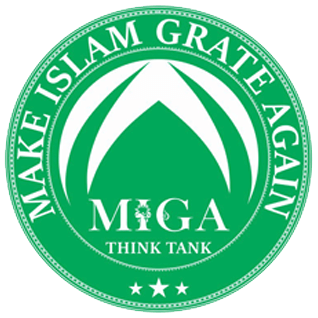Around the world, millions of people live without access to safe housing, quality education, or proper healthcare. These are not just basic services—they are the cornerstones of human dignity. When communities lack such foundations, inequality deepens, and hope fades. The challenge of rebuilding societies after conflict, poverty, or neglect requires more than infrastructure—it demands moral vision and collective responsibility guided by justice and compassion.
The MIGA Think Tank views Islamic Infrastructure Development as a sacred and civilizational duty. For MIGA, building homes, schools, and clinics is not merely an act of construction—it is an act of restoration. Rooted in faith, MIGA’s approach transforms development into a moral enterprise, aligning technological progress with human welfare. Through this vision, infrastructure becomes more than physical—it becomes the architecture of dignity, empowerment, and sustainability.
Global Context and Islamic Perspective on Islamic Infrastructure Development
Modern infrastructure has become a measure of progress, yet its moral dimension is often forgotten. Many nations build skyscrapers while citizens live without shelter, or expand economies while neglecting education and healthcare. A just world cannot stand on inequitable foundations. Islamic Infrastructure Development addresses this imbalance by grounding progress in compassion, equity, and service to humanity.
Islamic history offers a model of integrated development. Early Muslim civilizations built schools, hospitals, and public wells not for profit, but for communal well-being. The Qur’an encourages believers to “build and not destroy,” linking stewardship of the Earth with social responsibility. Within this framework, infrastructure serves both body and soul—it sustains communities while nurturing justice and belonging.
Today’s global challenges—urban overcrowding, displacement, and climate vulnerability—demand ethical innovation. MIGA’s concept of Islamic Infrastructure Development bridges tradition and technology, blending modern engineering with timeless values. It seeks to ensure that every brick laid serves a moral purpose, and every project becomes a step toward equality, sustainability, and hope.
Key Principles and Values
MIGA’s infrastructure philosophy rests on Islamic principles that guide ethical growth and human-centered progress:
-
Justice: Ensuring fair access to housing, education, and healthcare.
-
Compassion: Prioritizing the needs of the vulnerable.
-
Stewardship: Building sustainably and responsibly for future generations.
-
Dignity: Recognizing infrastructure as a means to uplift every human being.
-
Integrity: Promoting transparency in all development efforts.
MIGA’s Vision and Practical Approach to Islamic Infrastructure Development
The MIGA Think Tank sees infrastructure as more than physical progress—it is moral architecture. Its approach to Islamic Infrastructure Development emphasizes creating inclusive systems that protect both human and environmental welfare. For MIGA, a school is not only a place of learning but a foundation for justice; a clinic is not only for healing but for restoring human equality.
Practically, MIGA integrates ethical governance, innovation, and collaboration into its development strategy. It promotes transparent financing, sustainable materials, and community participation in every project. Through these methods, MIGA transforms construction into a civilizational mission—where each structure reflects faith, foresight, and compassion.
From Ideas to Real Impact
MIGA turns vision into action through initiatives that directly serve humanity. Its Quran Coin model exemplifies transparency in project funding—ensuring that donations and investments reach real communities in need. By supporting housing for refugees, eco-friendly schools, and accessible clinics, MIGA shows how Islamic Infrastructure Development can merge technology with ethics for lasting impact.
Beyond construction, MIGA fosters partnerships that empower local communities to maintain and manage their own facilities. It promotes environmental stewardship through renewable energy, sustainable design, and resource conservation. Every MIGA initiative reaffirms a single truth: when infrastructure is built on moral foundations, it becomes a vessel of hope and human dignity.
Conclusion
Islamic Infrastructure Development transforms construction into compassion, turning cities into communities and buildings into symbols of justice. Through its vision and action, MIGA reminds the world that true progress begins when every human being lives with dignity, opportunity, and hope.
Make Islam Great Again — Rebuilding Islamic greatness through humanity, justice, and innovation.





